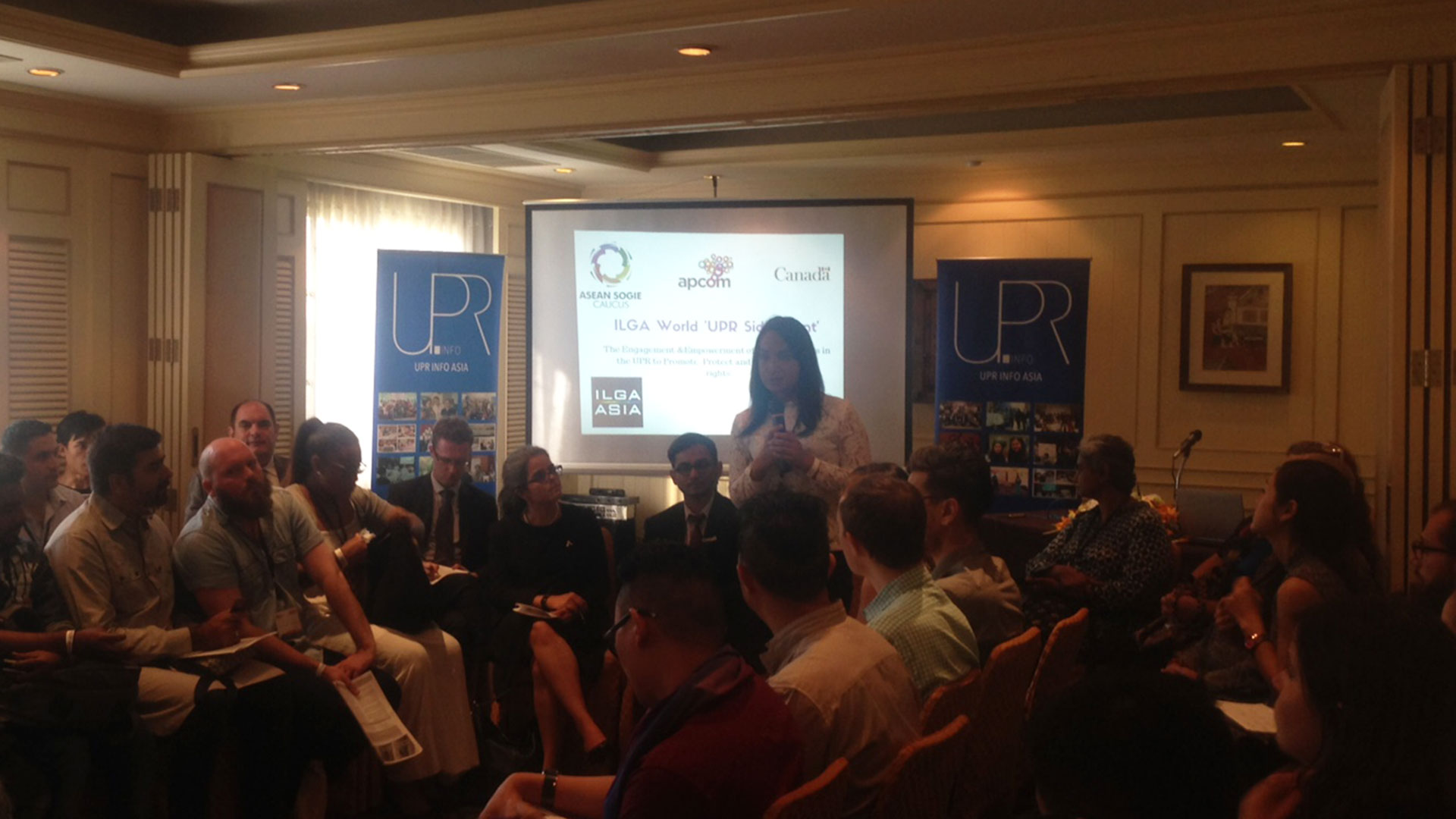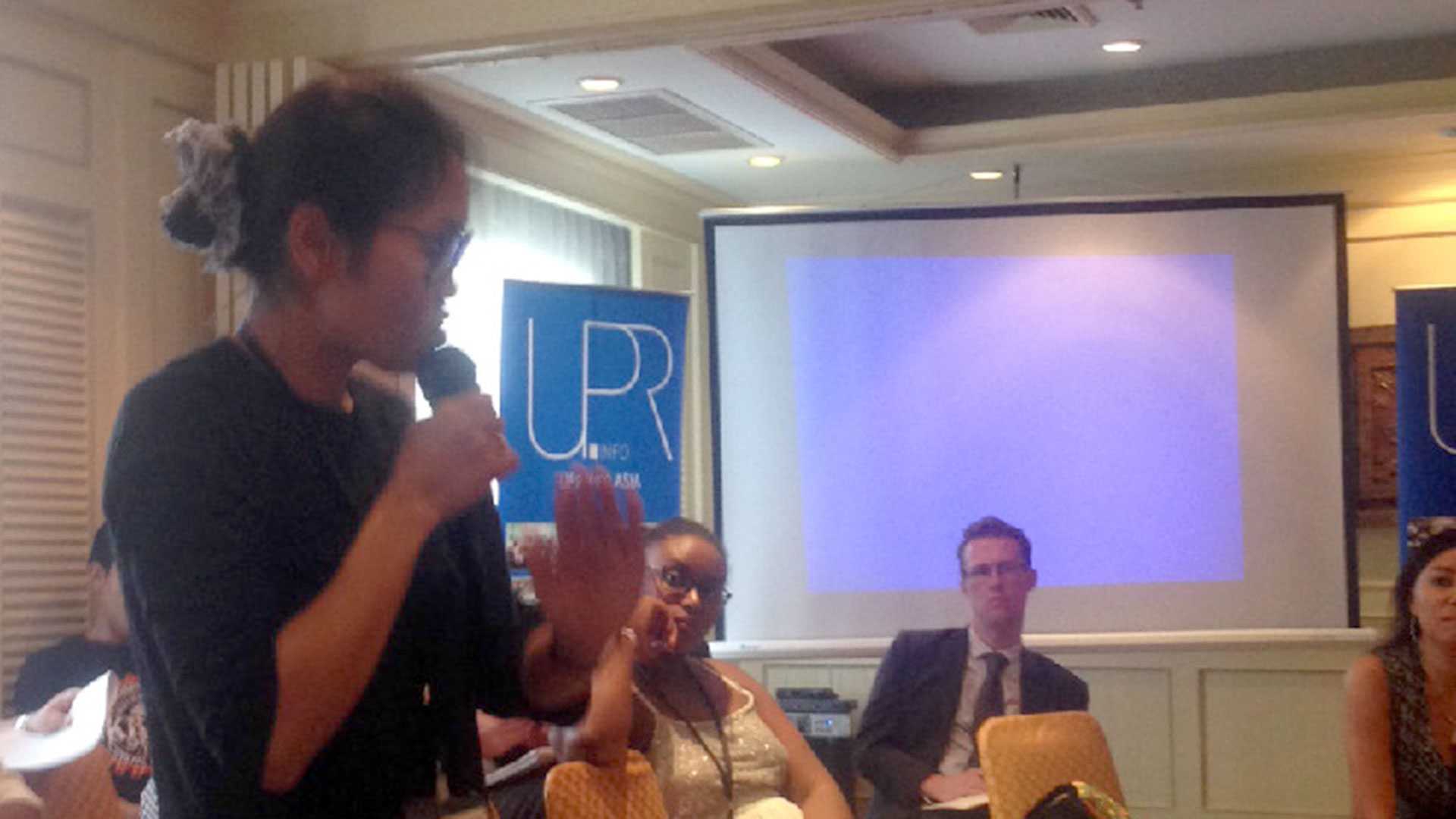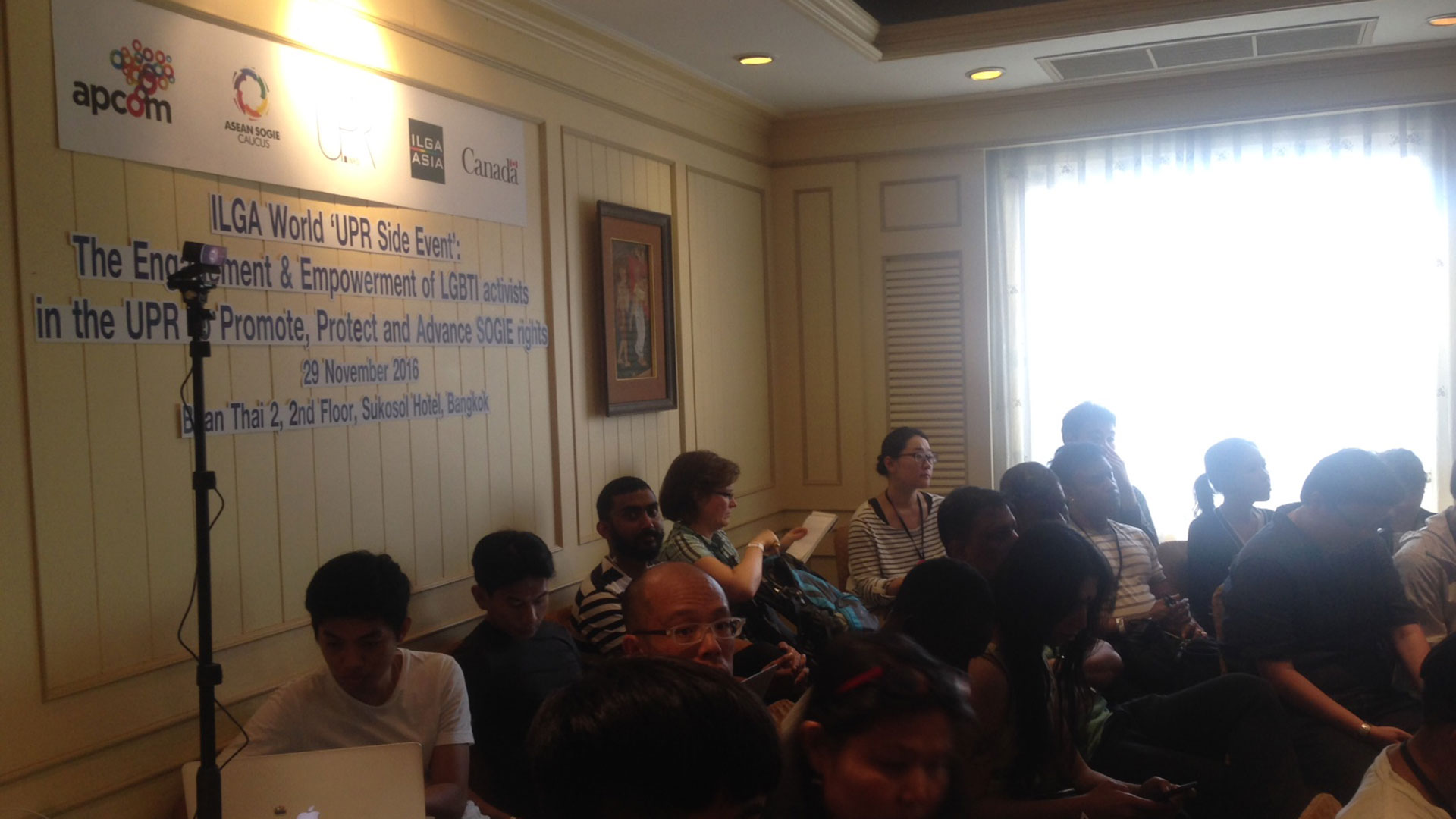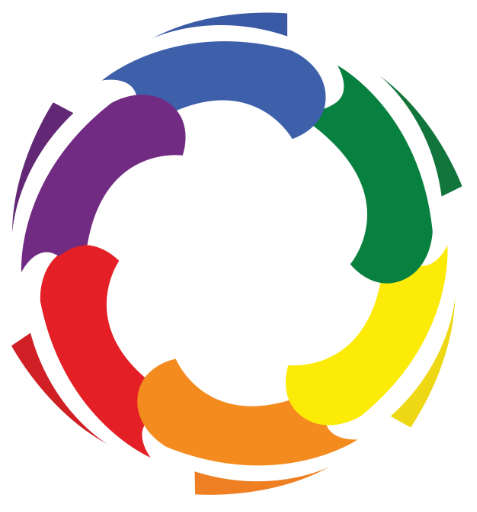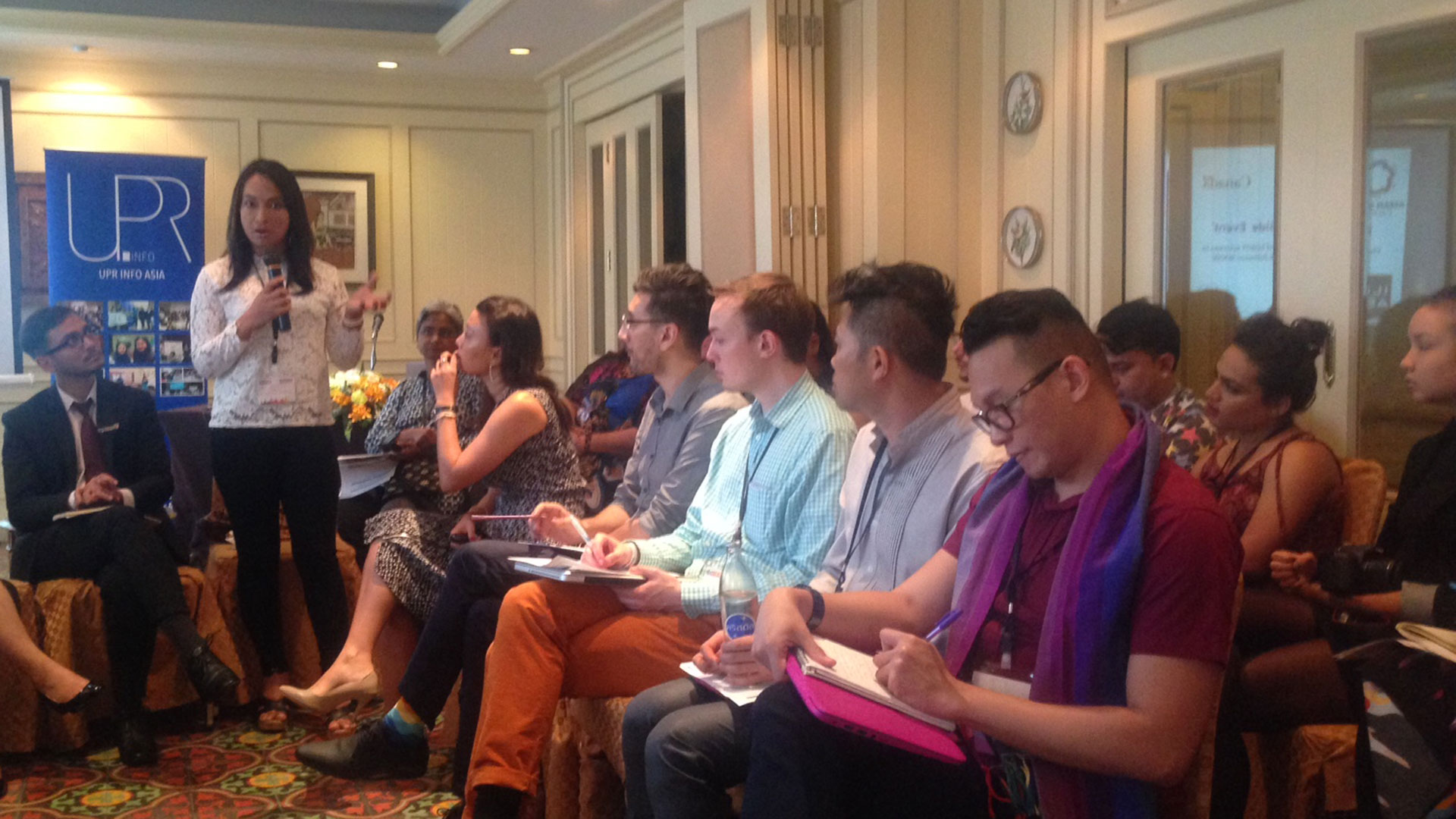The Universal Periodic Review (UPR) is a peer review process that covers all UN member states. It offers a unique opportunity to advance the realization of human rights worldwide.
According to the research conducted by ILGA and ARC, UPR was one of the most-used UN mechanisms by SOGIESC advocates (95 respondents have engaged with it and 81% of the survey respondents felt that the UPR was the most useful UN mechanism supporting their work). However, not so many local communities especially LGBTIQ within the global south familiar about the process. Local communities perceive misconception about the UPR that is a complex procedure and need certain expertise. However, the fact is in contrary with this myth and in fact the local communities should be in the centre of the overall advocacy process of the UPR.
On November 29, 2016, UPR Info, APCOM, ASEAN SOGIE Caucus, ILGA ASIA and the Embassy of Canada in Bangkok organized a discussion titled “The Engagement & Empowerment of LGBTI Activist in the UPR to Promote, Protect and Advance SOGIE rights”. This discussion served as a side-event during the ILGA World Conference. The event aimed to promote understanding on the importance of local communities’ engagement at the centre of the UPR process to give greater impact of SOGIE related recommendations. More than 70 people attended, including LGBTIQ activists and diplomats from the missions of Canada, USA and Brazil.
Emilie Pradichit from the UPR info opened the event by highlighting the UPR info’s commitment to engage, energize and empower local communities from all human rights sectors, including LGBTIQ organizations in the grass-root level, to be active in the UPR process so that their voices can reach the governments and foreign diplomats. Diana Prado from ILGA mentioned about the essence of civil society engagement to ensure that recommending states have a solid and factual basis to make recommendation for the state under review. Therefore, the given recommendations will not only good in quantity but also quality.
Ryan Silverio, the Regional Coordinator of ASEAN SOGIE Caucus shared the strategy of joining national human rights coalitions and mainstream the LGBTIQ issues within the UPR process. Similar experiences on engaging with other human rights coalitions were shared by participants from Myanmar, Singapore, Thailand and Indonesia.
One concrete example shared was how ASC engaged with a child rights coalition in the Philippines. ASC conducted a dialogue with LGBTIQ children, and this resulted with generating narratives depicting issues of corporal punishments, lack of access to education and gender bias in the curriculum. Such narratives were included in the separate UPR submissions of LGBTIQ groups and of child rights groups.
Diplomatic representatives who were in the event gave notation on the importance of engaging the missions within their respective country for UPR lobbying. One participant shared that many diplomatic missions are not familiar with UPR and that constant information sharing is vital. Another representative shared that CSO’s should submit concise and clear information to help mission craft their recommendations.
Many participants shared that UPR is not only about the getting recommendations but also about continuously monitoring state’s human rights performance. Civil society organizations and communities have a key role to play in this regard.
